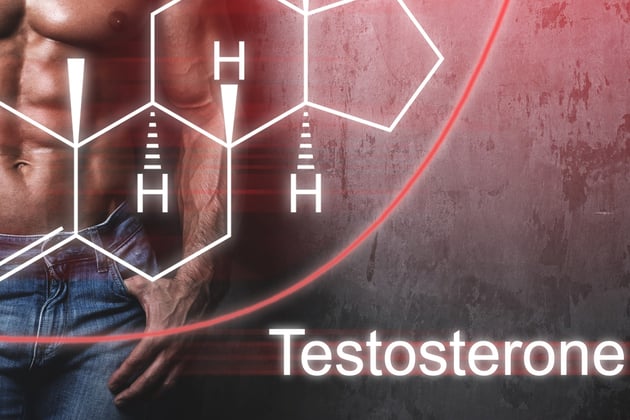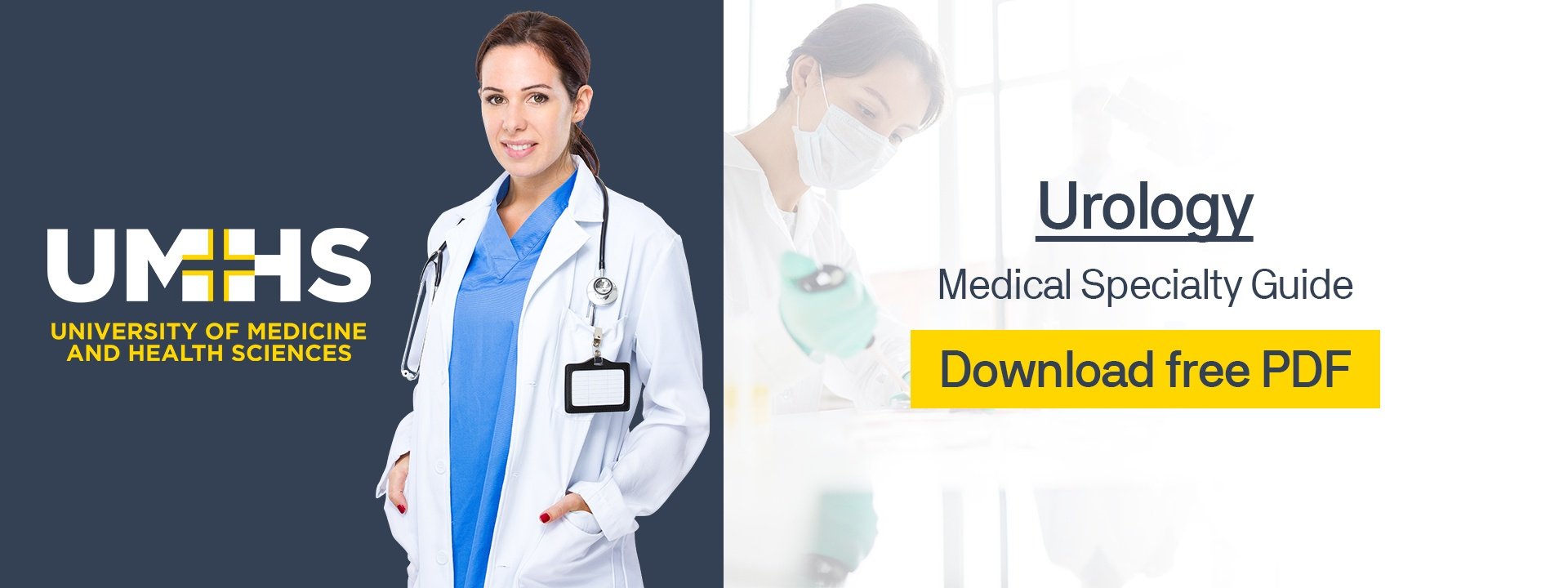Men age 35 and older often suffer from low testosterone or “Low T”, and it is impossible to watch TV without seeing commercials for prescription testosterone medications (androgen-replacement therapy). A recent study published in JAMA Internal Medicine says testosterone prescriptions in the USA have “more than tripled” in the last 10 years.
The drug, available in a popular gel form (Androgel, Testim, etc.), is classified as a controlled substance by the U.S. government, but the JAMA study says it is tricky tracking the medication because so much of it is distributed in “low T clinics” and sold for cash. The manner in which the medication is being sold is alarming to endocrinologists and urologists, many of whom say doctors at “low T clinics” might be risking the health of patients.
The UMHS Pulse looks at what the JAMA (Journal of American Medical Association) study means for doctors and students at American and Caribbean medical schools, the health risks of prescribing testosterone medication to men who don’t need it, and one doctor’s defense of “Low T” clinics.
Kaiser Health News: Low T is ‘Biggest Men’s Health Craze Since Rogaine or Viagra’
“It is perhaps the biggest men's health craze since Rogaine or Viagra: so-called low testosterone clinics, which have rapidly grown in cities and suburbs all across the country,” an article by Sarah Varney on Kaiser HealthNews.org, published in late April, said.
Anyone who has read North American men’s fitness magazines the past decade has likely seen ads for these “Low T” clinics in both the United States and Mexico. Some ads claim to offer prescription testosterone that will make men lose body fat, gain muscle mass, increase sex drive and energy levels, and more.
Discover if a career in Urology is right for you.
Learn why 89% of doctors would choose the same specialty again.
Kaiser HealthNews.org spoke to board-certified urologist Dr. Edward Karpman, director of the Men’s Health Center at El Camino in Los Gatos, CA. Dr. Karpman told Kaiser Health News that “low T” clinics don’t address the many health problems that can be mistaken for typical signs of low testosterone, including low energy and decreased sex drive: Sleep apnea, depression and heart disease
“In most doctors’ offices, you don’t see a big shingle over their door saying, ‘Get your testosterone here!’” Dr. Karpman says. “Any man who presents, especially in his 40s and 50s, with new onset erectile dysfunction is at an increased risk for cardiovascular disease and even heart attack or myocardial infarction.”
Kaiser Health News cites a study published in January 2014, “Increased Risk of Non-Fatal Myocardial Infarction Following Testosterone Therapy Prescription in Men", noting that more than 55,000 men had a “doubling or heart attack risk among older men who used testosterone,” while “younger men who had a history of heart disease had a higher incidence of non-fatal heart attacks.”
Men may also experience testicular shrinkage after prolonged high-level testosterone-replacement therapy, the study said.
Kaiser HealthNews.org says the Food and Drug Administration (FDA) “is reassessing the safety of testosterone products. A spokesperson reiterated the agency’s own guidelines: none of the products approved by the FDA should be prescribed unless low testosterone is associated with a medical condition.”
Kaiser Health News interviewed Dr. Bradley Anawait of the Hormone Health Network, a professional association for endocrinologists that has clinical guidelines for testosterone therapy. Dr. Anawalt is vehemently against “Low T” clinics.
“They are sex-hormone factories,” Dr. Anawalt said. “What I mean by that is: They are out to promote all the potential virtues and great myths about how testosterone may solve all problems. And they’re really out to prescribe as much testosterone as they possibly can, and it’s not clear that all these practices are completely safe.”
Kaiser Health News reports that after a review of physicians working in “Low T” clinics, few were specialized in urology or endocrinology.
“Instead, one doctor at a Chicago clinic and another in Fort Lauderdale were anesthesiologists; in Houston, an allergist; in Phoenix, an osteopath; and in Washington, D.C., an obstetrician-gynecologist,” the article said.
A ‘Low T’ Clinic Doctor’s Counterpoint
Doctors at "Low T" clinics argue that they work for legitimate medical practices. Kaiser Health News spoke to Dr. Bill Reilly, the chief medical officer at Low T Center, a chain of clinics, based in Southlake, Texas. His company has 45 offices and approximately 35,000 patients. Dr. Reilly told Kaiser Health News that patients must have a diagnosed medical condition.
“Our number one complaint at Low T is, ‘Why won’t you treat me?’ We just don’t see a patient [and say], ‘Hey, here you go. Here’s some testosterone,’” Dr. Reilly said. “They go through a complete history, physical, thorough evaluation. We go through their symptoms.”
Dr. Reilly said about “15,000 men are turned away with no treatment because they don’t meet the medical definition of low testosterone. And those with sleep apnea or high blood pressure or other serious illnesses are encouraged to see their family doctor.”
Dr. Reilly previously worked as a joint surgeon and told Kaiser Health News that training in urology or endocrinology is unnecessary.
“You don’t need to be an endocrinologist. You don’t need to be an urologist. We’re all doctors. And we study more about testosterone,” Dr. Reilly said. “We see more testosterone and know the results more than they do. We basically follow the national endocrinology guidelines.”
Dr. Reilly told Kaiser Health News that criticism of the industry “is perhaps just ignorance and fear of the competition”. Low T Center is expected to grow in the next year and serve an estimated 70,000 patients.
(Top photo) Image: Deposit Photos
About UMHS:
Built in the tradition of the best US universities, the University of Medicine and Health Sciencesfocuses on individual student attention, maintaining small class sizes and recruiting high-quality faculty. We call this unique approach, “personalized medical education,” and it’s what has led to our unprecedented 96% student retention rate, and outstanding residency placements across the US and Canada.

Scott is Director of Digital Content & Alumni Communications Liaison at UMHS and editor of the UMHS Endeavour blog. When he's not writing about UMHS students, faculty, events, public health, alumni and UMHS research, he writes and edits Broadway theater reviews for a website he publishes in New York City, StageZine.com.

















